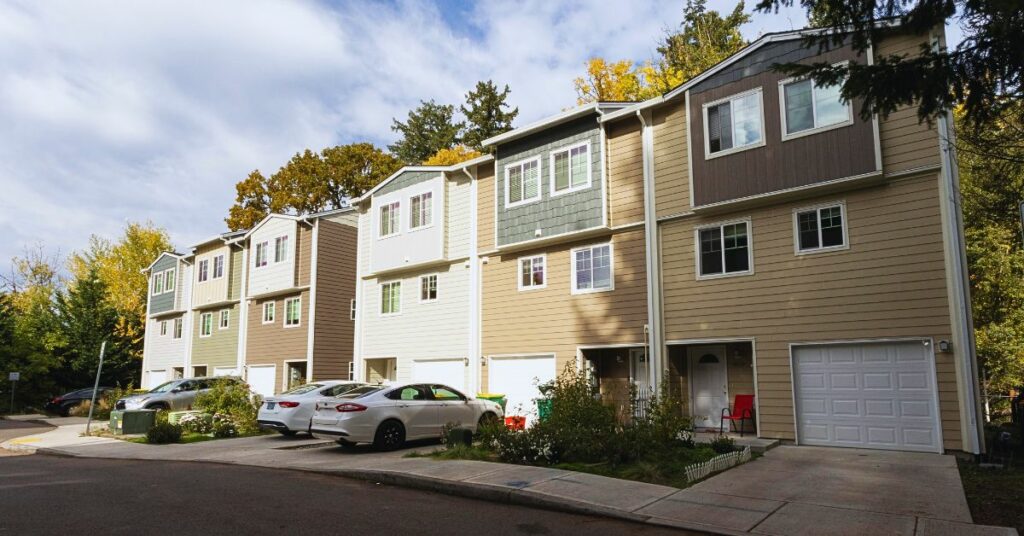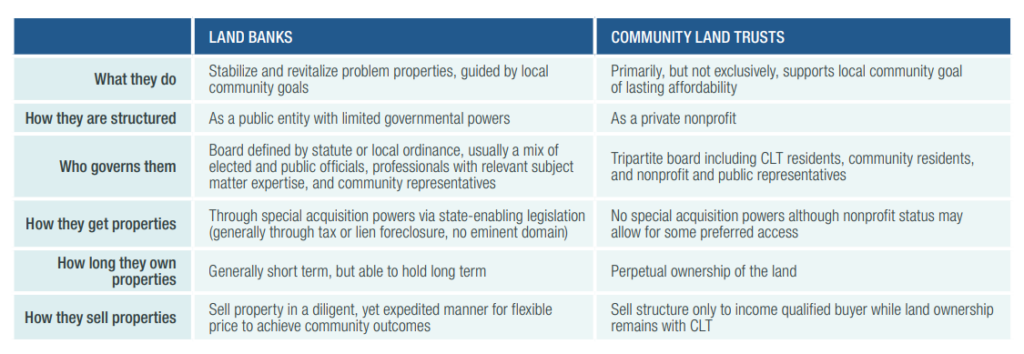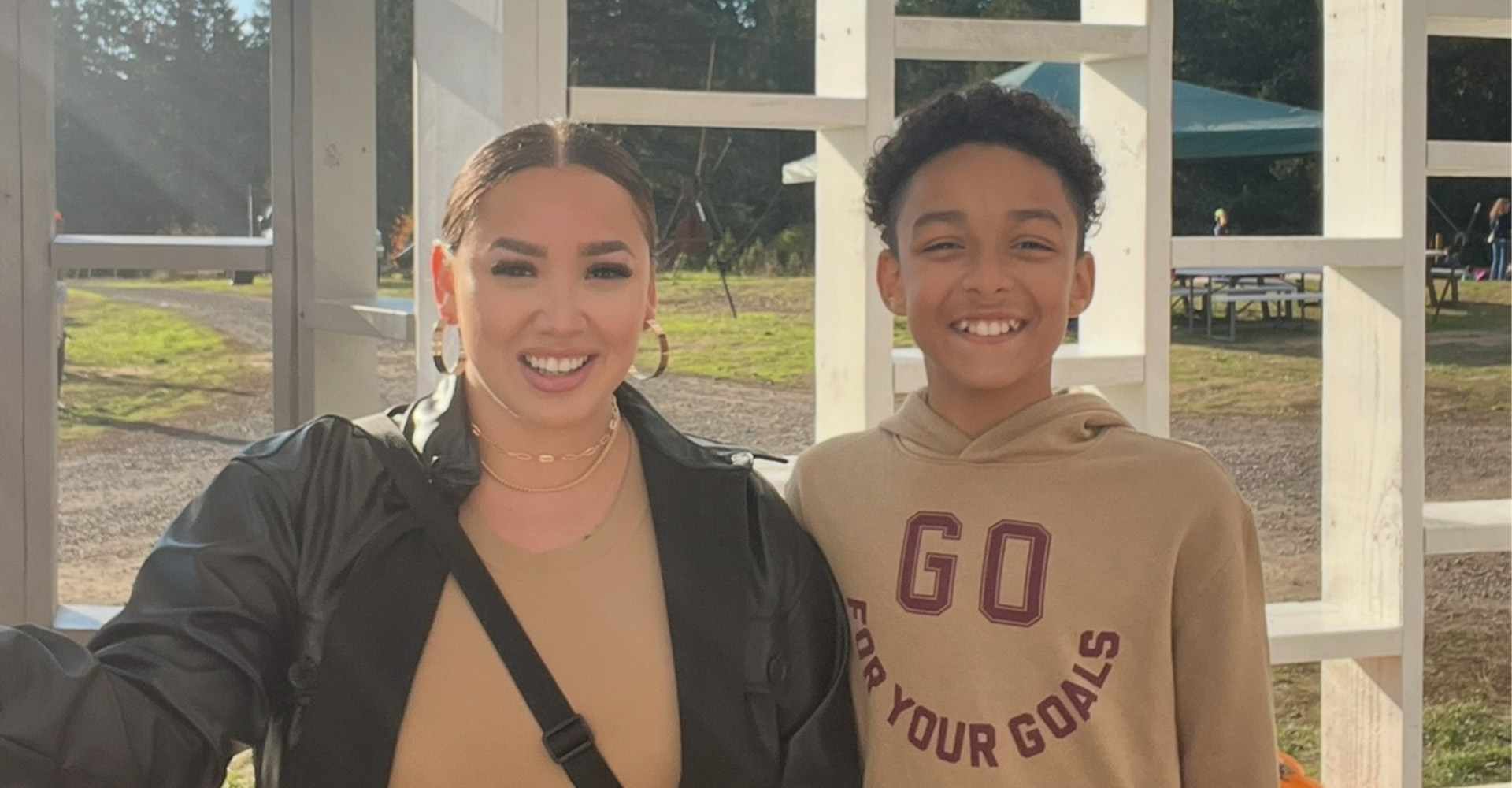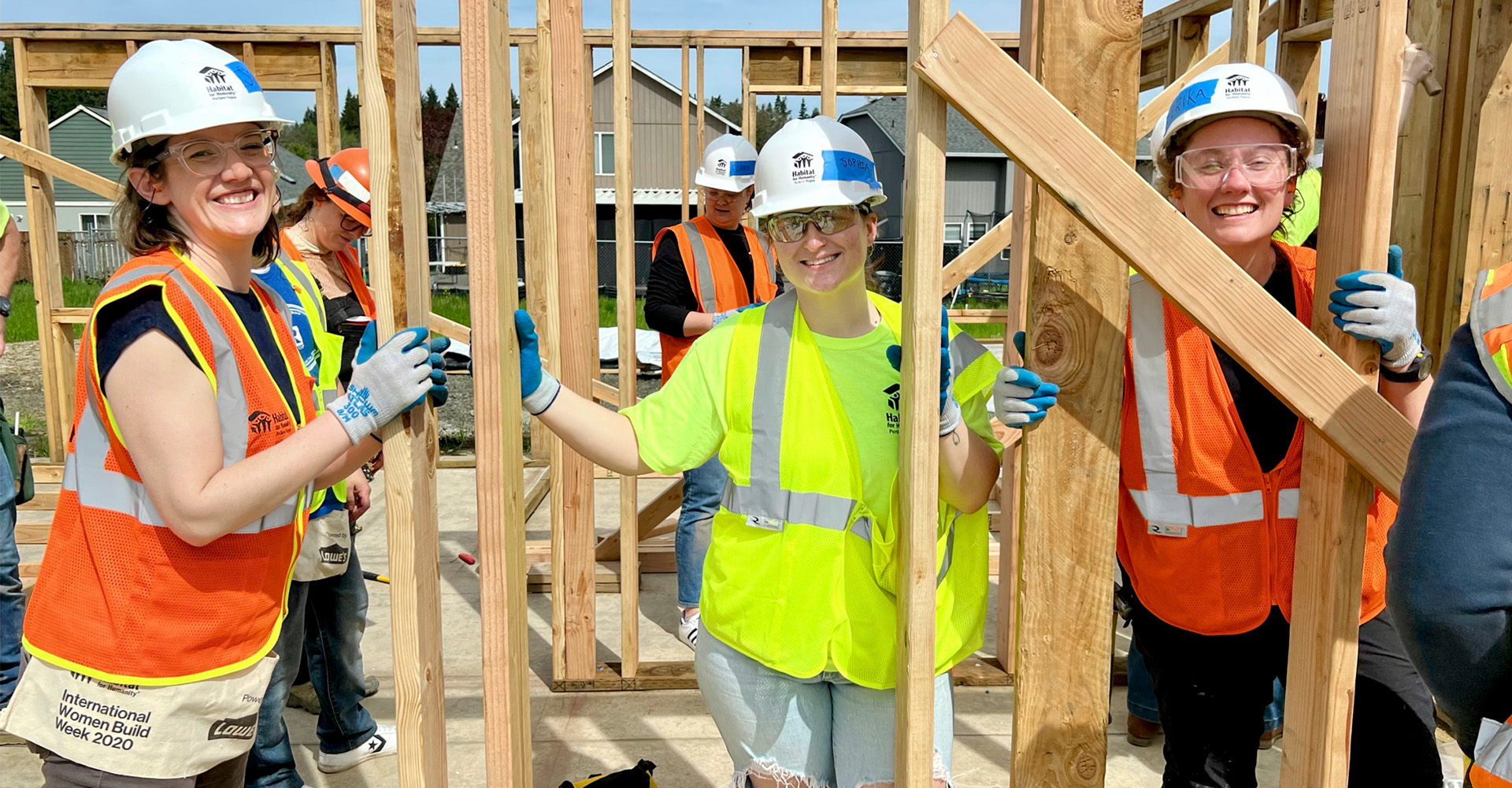
Portland recently passed its first Housing Production Strategy, with a goal to create more than 120,000 units by 2045 to meet the projected housing demand. It wants 53% of them to be affordable to lower income households.
Doing that means a comprehensive plan with creative approaches to building affordable homes, not just for today, but well into the future.
Housing is considered affordable when its costs are no more than 30% of income, according to federal guidelines. But last year, less than half of home sales in Portland were considered affordable to households earning the area median income (AMI).
A top priority for Habitat Portland Region is lasting affordability. That means the home price won’t skyrocket on resale, and ensures future buyers get the same opportunity for affordable homeownership. To do this, Habitat partners with Proud Ground, a community land trust, or CLT.
Proud Ground started in 1999 as the Portland Community Land Trust. Over the last 25 years, Proud Ground has helped more than 650 families become first-time homeowners. More than 75% of those households are Black, Indigenous or people of color. Proud Ground has 530 homes in its land trust, with an additional 150 in the pipeline. But the need exceeds those numbers.
“What they saw at that time, and what we still see today, is just the lack of homeownership and in a way that it’s sustainable,” said Proud Ground Executive Director Dominique Merriweather.
With a CLT, a home is treated as a collective good and not a tool for private speculators. This helps create entry-level homeownership opportunities and prevent displacement of communities of color from neighborhoods that are gentrifying.
WHAT IS A COMMUNITY LAND TRUST?
A CLT is a non-profit organization that acquires and holds land as a community asset.
They’re governed by a board of housing residents, community members and external stakeholders.
The first CLT was formed in 1969 out of the Civil Rights Movement. New Communities Inc., provided Black farmers access to land. Today the CLT model can be used for farming or conservation, but most often preserves affordable housing. The national organization for CLTs estimates 330 community land trusts operate with a focus on shared equity homeownership. All newly built Habitat Portland Region homes are included in the CLT through Proud Ground.
Proud Ground homebuyers purchase the house but lease the land it sits on through a 99-year agreement. The purchase price is 20-50% less than a market-rate home. In exchange for that subsidy, the homebuyers agree to resale terms that split equity with Proud Ground and keep the house affordable for the next buyer.
“I think that our country is used to 100% equity, which means, if you own a home, when you sell a home, you receive all the proceeds,” said Merriweather. “Part of our education process is giving them all the information up front about what that (shared equity) model looks like, what they should expect in return.”
That education process includes access to an independent attorney. Merriweather also pointed out that homeowners are reimbursed for a portion of any home improvements when they sell, and emphasized that the idea of a CLT controlling what homeowners can do with their property “couldn’t be further from the truth.”
Freedom is an important concept for Merriweather. He takes pride that the CLT model empowers qualified homebuyers to decide where they want to live based on needs such as work and school. Habitat homes are not the only option. Proud Ground maintains a separate portfolio of additional properties in the Pacific Northwest. And as long as the homebuyers qualify for Proud Ground’s program and agree to place land in the trust, they can shop on the regular real estate market.
“When we talk about affordable housing in general, I think it’s important to understand that oftentimes we take that choice away from people. We build an apartment complex here, and that’s where you’ve got to go if you want to have subsidized rent, or whatever the case might be,” Merriweather said.
A home in a community land trust still becomes a family asset that can be passed down to the next generation. Merriweather noted that some Proud Ground homeowners have been in their homes for more than 20 years, and the organization is helping them age in place.
Homeowner support is another way Proud Ground and Habitat work together, including Habitat’s Critical Home Repair program to Homeownership Education classes.
And Habitat and Proud Ground teamed up to provide input on Portland’s Housing Production Strategy, ensuring homeownership was included as a housing strategy for households below 80% AMI, or $94,400 for a family of four. The city also elevated a comprehensive land banking strategy from an “idea for exploration” to a high priority goal.
WHAT IS A LAND BANK?
Land banks are usually public entities. They acquire property—often abandoned, vacant, or foreclosed—for future development. Land banks can be given power to eliminate liabilities, including title defects and liens.
Community land trusts and land banks are different but can be complementary. Houston, Texas is one city where the two work together to help underserved communities and reduce neighborhood displacement. Los Angeles County recently launched a pilot program to acquire land ahead of two major infrastructure projects and preserve affordability in those areas.

Portland is planning to begin building out a land-banking strategy beginning in early 2025. There are many questions to consider, such as selecting an entity to convene and coordinate the land bank, as well as establishing funding sources.
Even without a formal land bank, there are opportunities to repurpose underutilized public land. For example, Habitat Portland Region is planning to develop 70 homes on former Portland Water Bureau properties.
Merriweather also sees opportunities in empty city lots. “We could really start to create some impact in neighborhoods and revitalize them, and bring people back to neighborhoods that they’ve been displaced from,” he said.
Proud Ground will celebrate its 25th anniversary in December, with a gala event planned for March 2025. Learn more about their work at proudground.org

